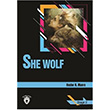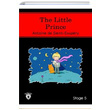The Divine Comedy describes Dante`s journey through Hell (Inferno), Purgatory (Purgatorio), and Paradise (Paradiso), guided first by the Roman poet Virgil and then by Beatrice, the subject of his love and of another of his works, La Vita Nuova. While the vision of Hell, the Inferno, is vivid for modern readers, the theological niceties presented in the other books require a certain amount of patience and knowledge to appreciate. Purgatorio, the most lyrical and human of the three, also has the most poets in it; Paradiso, the most heavily theological, has the most beautiful and ecstatic mystic passages in which Dante tries to describe what he confesses he is unable to convey (e.g., when Dante looks into the face of God: "all`alta fantasia qui manco possa"-"at this high moment, ability failed my capacity to describe," Paradiso, XXXIII, 142).
This Book is Illustrated and Complete version of the "Don Quixote" by Cervantes. About This Translation: "It was with considerable reluctance that I abandoned in favour of the present undertaking what had long been a favourite project: that of a new edition of Shelton`s "Don Quixote," which has now become a somewhat scarce book. There are some-and I confess myself to be one-for whom Shelton`s racy old version, with all its defects, has a charm that no modern translation, however skilful or correct, could possess.
Shelton had the inestimable advantage of belonging to the same generation as Cervantes; "Don Quixote" had to him a vitality that only a contemporary could feel; it cost him no dramatic effort to see things as Cervantes saw them; there is no anachronism in his language; he put the Spanish of Cervantes into the English of Shakespeare. Shakespeare himself most likely knew the book; he mayhave carried it home with him in his saddle-bags to Stratford on one of his last journeys, and under the mulberry tree at New Place joined hands with a kindred genius in its pages.
To speak of "Don Quixote" as if it were merely a humorous book would be a manifest misdescription. Cervantes at times makes it a kind of commonplace book for occasional essays and criticisms, or for the observations and reflections and gathered wisdom of a long and stirring life. It is a mine of shrewd observation on mankind and human nature.
Among modern novels there may be, here and there, more elaborate studies of character, but there is no book richer in individualised character. What Coleridge said of Shakespeare in minimis is true of Cervantes; he never, even for the most temporary purpose, puts forward a lay figure.
There is life and individuality in all his characters, however little they may have to do, or however short a time they may be before the reader. Samson Carrasco, the curate, Teresa Panza, Altisidora, even the two students met on the road to the cave of Montesinos, all live and move and have their being; and it is characteristic of the broad humanity of Cervantes that there is not a hateful one among them all. Even poor Maritornes, with her deplorable morals, has a kind heart of her own and "some faint and distant resemblance to a Christian about her;" and as for Sancho, though on dissection we fail to find a lovable trait in him, unless it be a sort of dog-like affection for his master, who is there that in his heart does not love him?
|
Yazar Hakkında
 |
Miguel de Cervantes1547de Alcala de Henaresde doğdu. Babasının şehir şehir dolaşması nedeniyle düzenli bir eğitim görmedi. Okumaya meraklı olduğu için kendi kendini yetiştirdi. Bir süre orduda görev alan Cervantes, Romada Kardinal Giulio Acquavivanın maiyetinde görev aldı. 1571deki İnebahtı deniz savaşında Osmanlılara karşı savaştı. Daha sonraki beş yılda da orduda kalan Cervantes, ülkesine dönmek için yola çıktığında bindiği gemi Osmanlı donanmasının eline geçti ve kendisi Cezayir valisi Hasan Paşa tarafından esir alındı.(15751580). 23 Nisan 1616da Madridde öldü.
|
1 |
 |
Alice In Wonderland Stage 1 Dorlion Yayınları |
80.00 TL
59.62 TL
| 833 adet Satıldı |
2 |
 |
Mysterious Island Stage 1 İngilizce Hikaye Jules Verne Dorlion Yayınları |
80.00 TL
59.62 TL
| 572 adet Satıldı |
3 |
 |
Black Beauty Stage 1 Dorlion Yayınları |
80.00 TL
59.62 TL
| 381 adet Satıldı |
4 |
 |
Romeo Juliet İngilizce Roman William Shakespeare Dorlion Yayınları |
120.00 TL
90.00 TL
| 352 adet Satıldı |
5 |
 |
The Five Orange Pips Stage 3 Dorlion Yayınevi |
80.00 TL
59.62 TL
| 336 adet Satıldı |
6 |
 |
She Wolf Stage 2 İngilizce Hikaye Hector Hugh Munro Dorlion Yayınevi |
80.00 TL
59.62 TL
| 204 adet Satıldı |
7 |
 |
The Little Prince İngilizce Hikaye Stage 5 Antoine De Saint Exupery Dorlion Yayınevi |
80.00 TL
60.00 TL
| 185 adet Satıldı |
8 |
 |
En Güzel Hikayeler Rusça Hikayeler Seviye 1 Dorlion Yayınları |
80.00 TL
59.62 TL
| 178 adet Satıldı |
9 |
 |
Almanca Türkçe Hikayeler Derece 1 Kitap 1 Rüya Fono Yayınları |
234.00 TL
198.90 TL
| 178 adet Satıldı |
10 |
 |
Reginald Stage 3 ,İngilizce Hikaye Hector Hung Mnro Dorlion Yayınevi |
80.00 TL
60.00 TL
| 169 adet Satıldı |